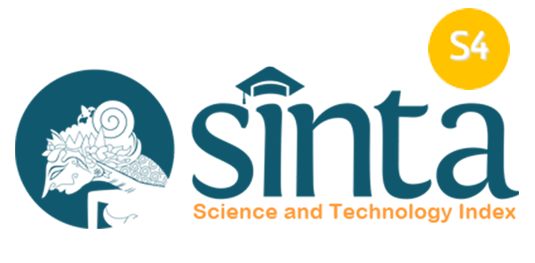Accessibility of Google Classroom by Undergraduates for Learning
Abstract
Keywords
Full Text:
PDFReferences
Akinola, D. (2012). A survey of entrepreneurship education curriculum as an instrument for reducing unemployment in Nigerian Universities. Abuja International Journal of Education And Management Sciences (ABIJEMS), 2(2012),330-345.
Belaya, V. (2018). The Use of e-Learning in Vocational Education and Training (VET): Systematization of Existing Theoretical Approaches. Journal of Education and Learning 7(5), 92-101.
Ezeugbo, C., and Asiegbu, E. (2011). Challenges in the application of e-learning in Continuing Education Programmes (CEP) in Nigerian Universities: Exploring Teachers’ Perspective. Ghana Journal of Education and Teaching (GHAJET), 12(2011), 267-275.
Hussaini, I., Ibrahim, S., Wali, B., Libata, I., and Musa, U. (2020). Effectiveness of Google classroom as a digital tool in teaching and learning: Students’ perceptions. International Journal of Research and Innovation in Social Science (IJRISS), 4(4), 51-54.
Islahi, F. (2019). Exploring teacher attitude towards information technology with a gender perspective. Contemporary educational technology, 10(1), 37-54.
Keane, D. T. (2012). Leading with technology. The Australian Educational Leader, 34(2), 44.
Mafa, K. R. (2018). Capabilities of Google Classroom as a teaching and learning tool in higher education. International Journal of Science Technology and Engineering, 5(5), 30-34.
Negara, I. M. (2018). Students Perception: The use of google classroom in teaching-learning process. Jurnal Ilmiah Spectral, 4(1), 012-025.
Nwana, S. (2012). Challenges in the application of e-learning by secondary school teachers in Anambra state, Nigeria. African Journal of Teacher Education (AJOTE), 2(1), 1-9.
Oguejiofor, C. S., and Ezeabasili, A. C. (2014). Imperatives of vocational education and sustainable development in Nigeria. African Research Review, 8(1), 42-52.
Okmawati, M. (2020). The use of Google Classroom during pandemic. Journal of English Language Teaching, 9(2), 438-443.
Olanipekun, W. D., Brimah, A. N., and Rabiu, R. O. (2015). Entrepreneurial and vocational education revolution: A catalyst for sustainable development. Kuwait Chapter of Arabian Journal of Business and Management Review, 33(2587), 1-9.
Otuaga, O. U. (2012). The Economic impacts of vocational training in tertiary institutions in Nigeria. Journal of Educational and Social Research, 2(8), 43-48. .
Oyetunde, O. A., Oluwafemi, O. K., and Bisola, A. M. (2016). Impact of vocational and entrepreneurship education on the economic growth of Ogun State, Nigeria. Makerere Journal of Higher Education, 8(1), 25-33.
Rahmad, R., Wirda, M. A., Berutu, N., Lumbantoruan, W., and Sintong, M. (2019). Google classroom implementation in Indonesian higher education. Journal of Physics: Conference Series, 1175(1), 012153.
Sandi, G. (2012). Pengaruh blended learning terhadap hasil belajar kimia ditinjau dari kemandirian siswa. Jurnal Pendidikan dan Pengajaran, 45(3), 241-251.
Shaharanee, I. N. M., Jamil, J. M., and Rodzi, S. S. M. (2016). The application of Google Classroom as a tool for teaching and learning. Journal of Telecommunication, Electronic and Computer Engineering (JTEC), 8(10), 5-8.
Yushau, B., and Nannim, F. A. (2020). Investigation into the Utilization of ICT Facilities for Teaching Purposes among University Lecturers: Influence of Gender, Age, Qualification and Years of Teaching Experience. Pedagogical Research, 5(2), 1-9.
DOI: https://doi.org/10.17509/ijotis.v1i2.37704
Refbacks
- There are currently no refbacks.
Copyright (c) 2021 Universitas Pendidikan Indonesia

This work is licensed under a Creative Commons Attribution-ShareAlike 4.0 International License.
Indonesian Journal of Teaching in Science (IJoTIS) is published by Universitas Pendidikan Indonesia (UPI)
 Indonesian Journal of Teaching in Science
Indonesian Journal of Teaching in Science



